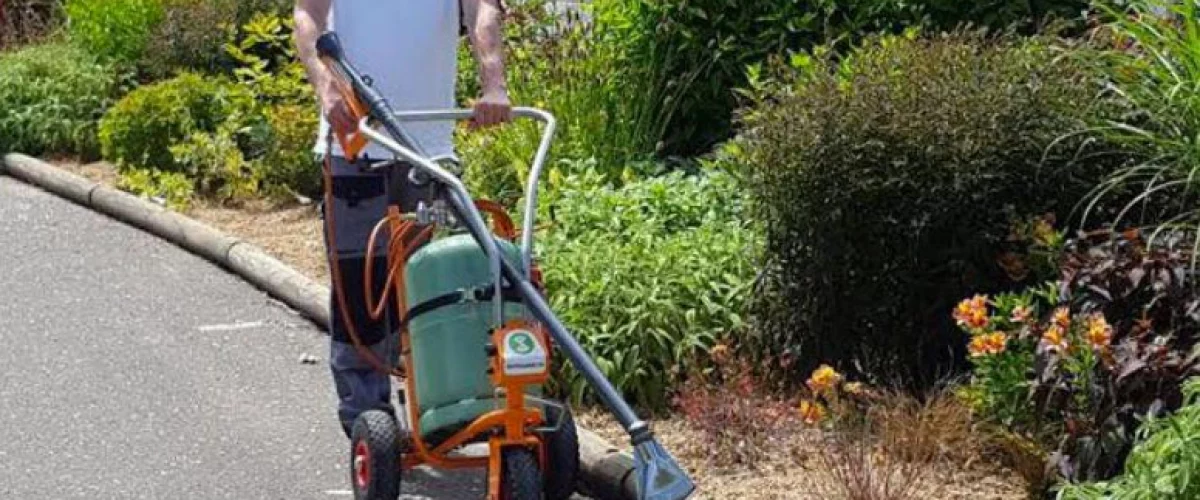All municipalities must carry out weeding work. The massive use of chemical weed killers was the norm for a long time, but this is no longer the case today. Amongst the ecological alternatives that exist, thermal weeding is gradually being adopted by the municipalities. It respects nature (and the law) and is easy and convenient for municipal employees to use, in addition to being economical.
What does the law say
Since1 January 2017, the use of chemical pesticides has been banned in a large part of public open areas, for the State, local authorities and public establishments. The law was put in place to protect biodiversity and the health of the populations.
Because of infiltration into the soil and dispersion into the atmosphere, the use of pesticides affects water quality, soil regeneration, plant pollination, and air quality. It is therefore logical to prohibit them for the maintenance of green spaces, roads or gardens.
Preserving public health and the environment is a major challenge for local authorities, which is why many of them are mobilising to eliminate the use of pesticides in their areas and find more environmentally friendly solutions.
What are the chemical pesticides
The stated goal is zero pesticide use. These products are divided into three categories:
- herbicides, to control unwanted plants, known as “weeds”;
- insecticides, against insects;
- fungicides, against diseases caused by fungi.
Thermal weeding
Thermal weeding uses heat to destroy wild plants. The thermal shock caused by the weeder causes the cells of the plants to burst, without burning them.
Electric or gas weeding
Thermal weeding works with electricity or gas. Electricity is reserved for very small areas, i.e. for private individuals. It uses either batteries with reduced autonomy or the mains connection which is limited by the length of the wire. It is also necessary to take into account the danger of using electricity in a natural environment due to humidity.
Thermal weeding with gas does not produce any pollution, either towards the ground – and in particular to the water table – or into the atmosphere. The device is durable, produces no waste and the gas cylinders can be recycled indefinitely.
The practical aspect of thermal weeding
Thermal weeding with gas allows municipalities to treat large areas and work without the need for a mains connection. The weeder is connected to a trolley that carries the gas cylinder, which allows the worker to work for a long time without fatigue, as the weeder itself is quite light.
Thermal weeding requires one or two passes to completely eradicate weeds. It can be used anywhere, which is crucial for a municipality. In addition to pavements, the weeder can be used to clean the edges of a park and its paths, to maintain cemeteries, retention ponds, floral arrangements of the municipality, etc.
The savings achieved, thanks to thermal weeding
The other important point for the municipalities is the savings made thanks to thermal weeding. The purchase of the device is a reasonable investment and its lifespan makes it largely profitable.
The next step is to buy the gas cylinders, but every effort is made by manufacturers to reduce the consumption of their appliances.
Thermal weeding appears to be the best solution for municipalities to keep their streets clean, without affecting the environment.
